If you’re looking for the ultimate safari adventure, you need look no further than the My1FitLife African Safari Adventure to Tanzania! Our nine day adventure includes at least four of Tanzania’s most famed national parks and conservation areas that are sure to make you feel as if you just stepped into the opening scenes of Disney’s The Lion King.
However, before you eagerly pack your bags and arrive six hours early to the airport, there are a few important details you will need to heed in order to get the most out of your safari adventure.
Wildlife rules. With that in mind, almost every rule, guideline, fee, or other measure we cover was established for the preservation of this spectacular place and its animal inhabitants.
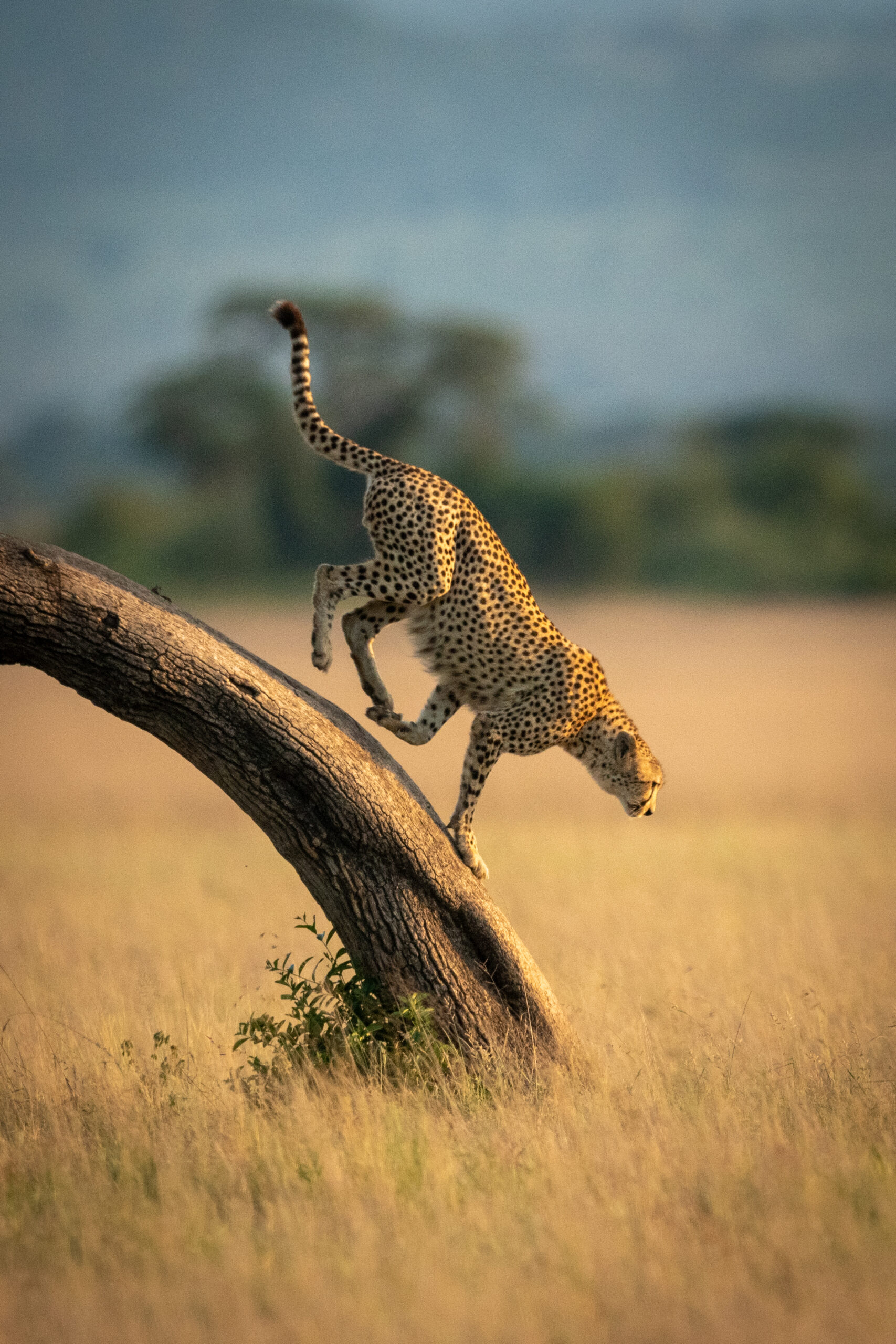

Traveling to Tanzania
Before you’re snapping photos of lions and elephants, or before you’re even on safari at all, here’s what you need to know to begin your trip in the Republic of Tanzania.
Passports
Travel to Tanzania requires a passport from your country of nationality, valid for at least six months after your return, with at least one blank page for stamps.
Visas
Even for a visit as short as ours, you must have a valid Tanzanian Tourist Visa to enter the country. To apply, visit the Tanzanian Immigration Affairs website here and click “Apply Now”.
On the following page, click “APPLY FOR A NEW VISA” under “New Application”. That page is also where you can check on the status of your application once it’s been submitted.
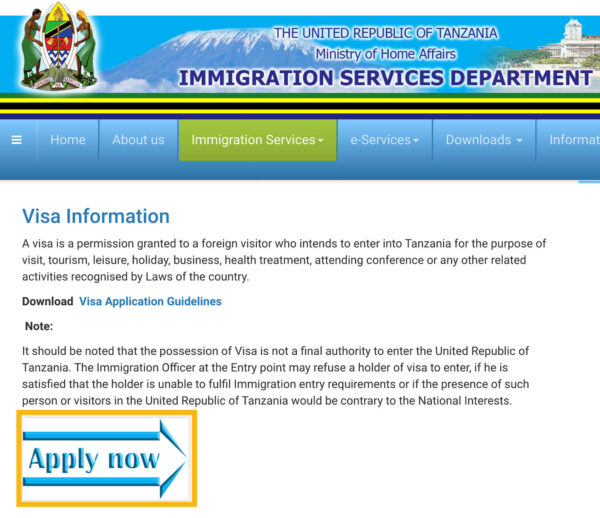

You will apply for an Ordinary Visa. The application fee is $50 (unless you plan to enter the country multiple times). Additionally, please note that the Tanzanian government predicts a processing time of roughly ten days. Monitor the status of your application, as well as the email address associated with your application closely. Since applications are non-refundable, you should respond ASAP if there’s any issue or additional information requested.
U.S. Embassy
There is a U.S. Embassy in Dar es Salaam, Tanzania’s capital. Additionally, you can find further information for U.S. travelers (in case of emergency) here.
COVID-19
While it’s best to be prepared—and while we might recommend you stay up-to-date on COVID-19 vaccinations and/or negative tests for your own safety—Tanzania does not require either a vaccination against, or proof of a negative test for, COVID-19 from travelers entering the country by air.
Health & Safety
Over-exposure to sun, mosquitos, and unclean water are all real threats while traveling across Tanzania. To prevent excessive sun exposure, pack a hat and lightweight, full-coverage (i.e. long sleeves, long pants) clothing, along with plenty of sunscreen.
You should also bring a water bottle to stay hydrated. We recommend either a bottle with its own filter, or that you purchase an independent filter. Most lodges and restaurants will provide you with either filtered or bottled drinking water, however it’s best to be wary of ice cubes and washed produce as there is some upset stomach-causing bacteria present in Tanzania’s water supply.
While mosquitos are less prevalent in the highlands—where we will spend a large chunk of our time—they, and accompanying malaria, remain a real threat. In addition to plenty of mosquito repellent as well as a mosquito net, you might consider a preventative medication—such as Malarone—to preemptively combat any chance of catching malaria. For more resources, click here.
Finally, bring either a universal outlet adaptor or an adaptor to outlet types D and G…preferably with a surge protector.
Money
Plan to convert or withdraw cash in Tanzanian Shillings (TZS). While credit cards are often accepted in major cities, the machines that read them are not totally ubiquitous across the country. And although ATMs run a-plenty in town, they’re all but nonexistent outside of town and near game walks and drives.

Note: Per Tanzanian law, only Tanzanian nationals, Kenyans, or Ugandans may remove TZS from the country. While a few coins may seem like a harmless souvenir, they’re probably not worth the potential legal implications.
Interacting with Locals
Tipping is not taboo in Tanzania, nor is it required. In any case, your best bet is to tip your guides to show appreciation. Much as in the U.S., the bulk of most hospitality professionals’ salaries come from tips!
Don’t take photos of locals and/or indigenous groups without asking. For one, they are people living their own lives and not there for your entertainment. For another, like most other African countries, Tanzanian culture is much more formal than our own. Start each conversation or request with “Hello, how are you?” as a sign of respect. When in doubt about interacting with, or photographing locals, ask your guide how to best proceed.
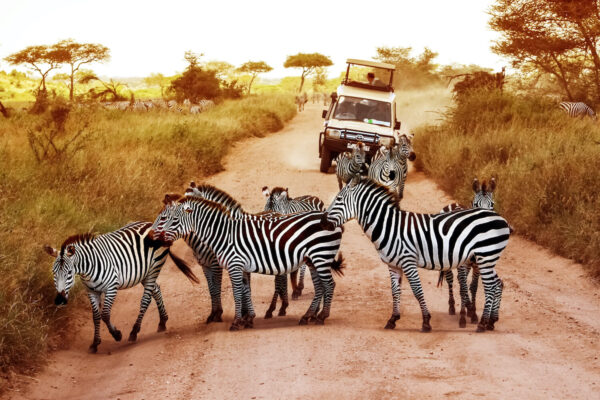
On Safari: Dos and Don’ts
Interacting with locals is only a fraction of the etiquette you must follow in order for an unforgettable safari experience. On safari (called game drives, locally), there simply are rules you must follow not just for your own, and others’ enjoyment, but for your safety, as well as that of the animals (the main reason you’re going!).
With that in mind…
Wish Lists
You have the opportunity to see hundreds (literally!) of different animal species on this trip, including the Great Migration, which features thousands of wildebeest crossing the planes to calve…followed by the hungriest of predators.
However, just because the possibilities are pretty much endless does not mean you’re guaranteed to see every furry/feathered/scaly creature your heart desires. Rather than focusing on what you’re “missing out on”, focus on the positive and be grateful for this incredible opportunity to view the animals you do in all their natural splendor.
Safety
Safaris are generally safe. However, anytime you enter the natural habitats of lions, other predators, and their prey, you are taking a certain degree of risk. Heed your guide’s instructions and warnings at all times; only exit your game vehicle when instructed. When in doubt, always remember: you are in the presence of wild animals.


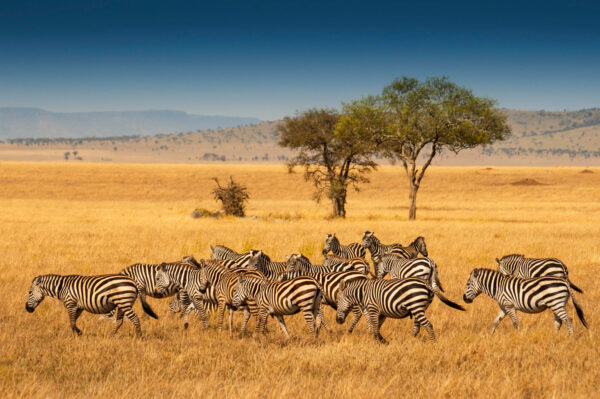
Etiquette
Be respectful of your guide, other safari-goers on your trip, and other safaris on your game drives. Don’t hog the best viewing/photographing seats; take turns with others on your expedition to share the best vantage points!
Don’t chase or feed the animals. See above, they’re wild and you’re in their habitat. Be respectful and practice practical safety at all times.
Don’t litter or pick flowers/other plants. You are in nationally preserved, wild habitats. Best to leave them as you find them.
Don’t create loud noises, make sudden movements, or do anything else that might startle a grazing herd of antelope. Always keep your voice down and speak softly to avoid frightening any nearby fauna. Additionally, wear as quiet of clothing as you can—you’d be surprised at just how loud a puffy windbreaker can be on an otherwise silent Serengeti.
Packing
Don’t overpack. Be mindful of how much traveling you’ll actually be doing as you experience and travel between national parks and game drives. Our golden rule is if you pack it, you carry it. Michelle, Keith, and your other adventure guides will be unavailable to help you with your luggage.
Wear neutral colors (greens, browns, khakis) to blend in with your surroundings and snag your best chance to catch the animals! Avoid bright colors (and loud patterns) that don’t blend in as well as dark colors that attract bugs, or white, which will get dirty impossibly fast on game walks and drives.
Bring lots of lightweight layers! Temperatures will vary as the best safari viewing typically occurs around dawn and dusk. Regardless if you’re out in the morning or evening, you will experience both the heat of the day and much cooler, sunless temps. Breathable fabrics make the least amount of noise and fleece is an excellent, lightweight, yet warm layer that dries quickly, just in case. Additionally, consider clothing with pockets to reduce the amount of baggage in your car while maximizing your options to bring a camera, binoculars, water, etc.
Bring a good camera or smartphone for pictures. Trust us, you’ll want as many shots as you can snap. You might also consider purchasing or renting a zoom lens to get up close and personal photos…from a distance. Regardless of what equipment you bring, make sure you know how to use it before the trip. You should be ready to snap a few pics with less than a moment’s notice! Upfront knowledge of your camera’s functions is key to making the most of your experience.
Aside from a camera, bring binoculars, a hat, sunglasses, sunscreen, bug repellent, water, etc. Pack everything you’ll need for the day at the beginning—while on a game drive, there’s no making a quick return to your hotel to pick up a forgotten camera!
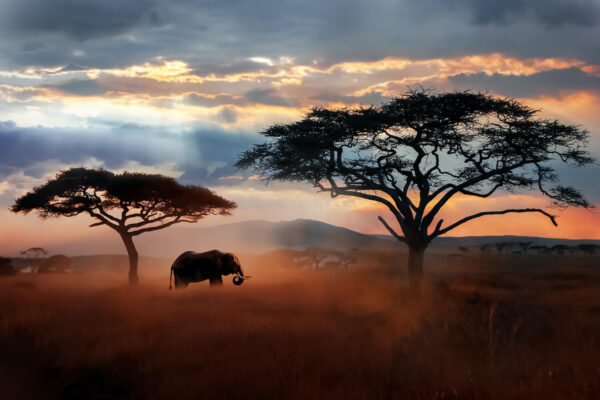
Preparation is key for anything, and never is that more true than on your unique, My1FitLife African Safari Adventure! That said, the most important measure you can take is to be flexible, above all. Current conditions change, the weather changes, plans change, travel arrangements change. The more you can go with the flow, the more you’ll get out of this bucket list experience!
My1FitLifeAdventures is dedicated to bringing travelers not just another group trip, but a trip that pushes them outside of their comfort zones and challenges their world perspective. We are determined to bring you life-changing experiences that don’t just allow you to relax, but rather equip you with the tools you need to handle the day-to-day when things get tough. Our holistic approach to nature and adventure will leave you with a stunning new outlook on life.

